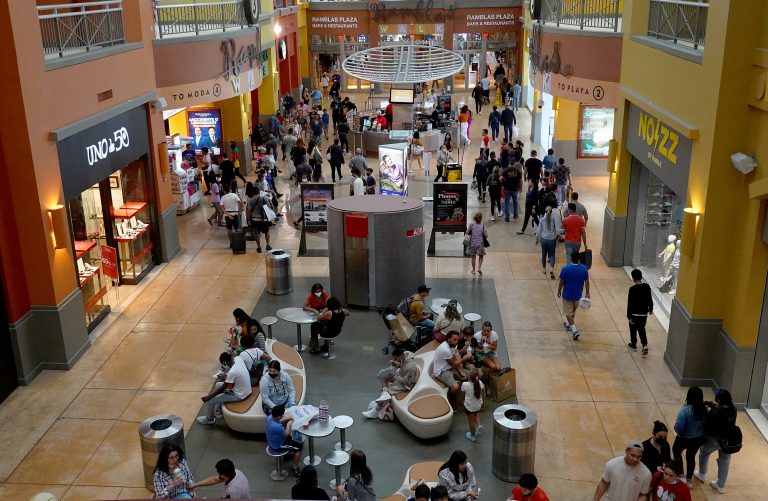The Federal Reserve’s preferred gauge of inflation, the Personal Consumption Expenditures (PCE) index, rose to its highest level in almost four decades in November. Consumer spending accounts for around 70 percent of economic activity in the United States and is an important data point to assess the state of the economy.
According to figures reported by the Bureau of Economic Analysis (BEA), the November PCE rose to 5.7 percent when compared to the same period last year, which is a faster pace of inflation growth than October’s 5.1 percent rise. The November figure is also the highest PCE level since July 1982 when the gauge had registered a growth of 5.8 percent.
On a monthly basis, PCE price index rose by $104.7 billion or 0.6 percent while PCE excluding food and energy increased by 0.5 percent. Disposable Personal Income (DPI) was up by 0.4 percent with an increase of $70.4 billion. BEA attributed November’s personal income surge to increases in government social benefits and private sector employee compensation. Food prices are up by 5.6 percent when compared to a year ago while energy prices spiked by a whopping 34 percent.
“The $104.7 billion increase in current-dollar PCE in November reflected an increase of $97.4 billion in spending for services and a $7.4 billion increase in spending for goods. The increase in services was widespread, led by housing and utilities. Within goods, an increase in nondurable goods (mainly gasoline and other energy goods) was partly offset by a decrease in durable goods (led by recreational goods and vehicles as well as motor vehicles and parts),” the bureau reported.
While the Biden administration blames inflation on COVID-19 and the resultant recession, many GOP lawmakers criticized Washington’s policies for rising prices. In a recent poll by Fox News, 46 percent of respondents blamed the Biden administration for “hurting” America’s ability to bring inflation under control. Around 42 percent fear that the president’s massive social spending plan will hurt the economy.
Success
You are now signed up for our newsletter
Success
Check your email to complete sign up
The results of a poll conducted by Gallup published on Dec. 22 reveals that the Economic Confidence Index (ECI) is at -33, similar to the levels it was at in April last year when worries about the COVID-19 pandemic stressed out the economy.
“With inflation in the U.S. at its highest point since 1982, Americans’ confidence in the economy has dropped to where it was in April 2020, when nationwide shutdowns brought on by the COVID-19 pandemic plunged the nation into a recession… Satisfaction with the country’s direction is lower than it has been since President Joe Biden’s inauguration in January,” according to Gallup.
The Fed, which used to refer to the current inflation as “transitory” has stopped using the term and has indicated that it might raise interest rates at least three times in 2022 to combat inflation and keep prices in check.
Meanwhile, Former Treasury Secretary Larry Summers warned in an interview with Bloomberg that surging inflation could eventually result in recession. He criticized the U.S. central bank for being too late to notice the dangers of inflation. The steps being taken by the Fed right now to cool down inflation could end up pushing down the economy, he said.
“If I thought we could sustainably run the economy in a red-hot way, that would be a wonderful thing, but the consequence – and this is the excruciating lesson we learned in the 1970s – of an overheating economy is not merely elevated inflation, but constantly rising inflation… That’s why my fear is that we are already reaching a point where it will be challenging to reduce inflation without giving rise to recession,” Summers stated.
















